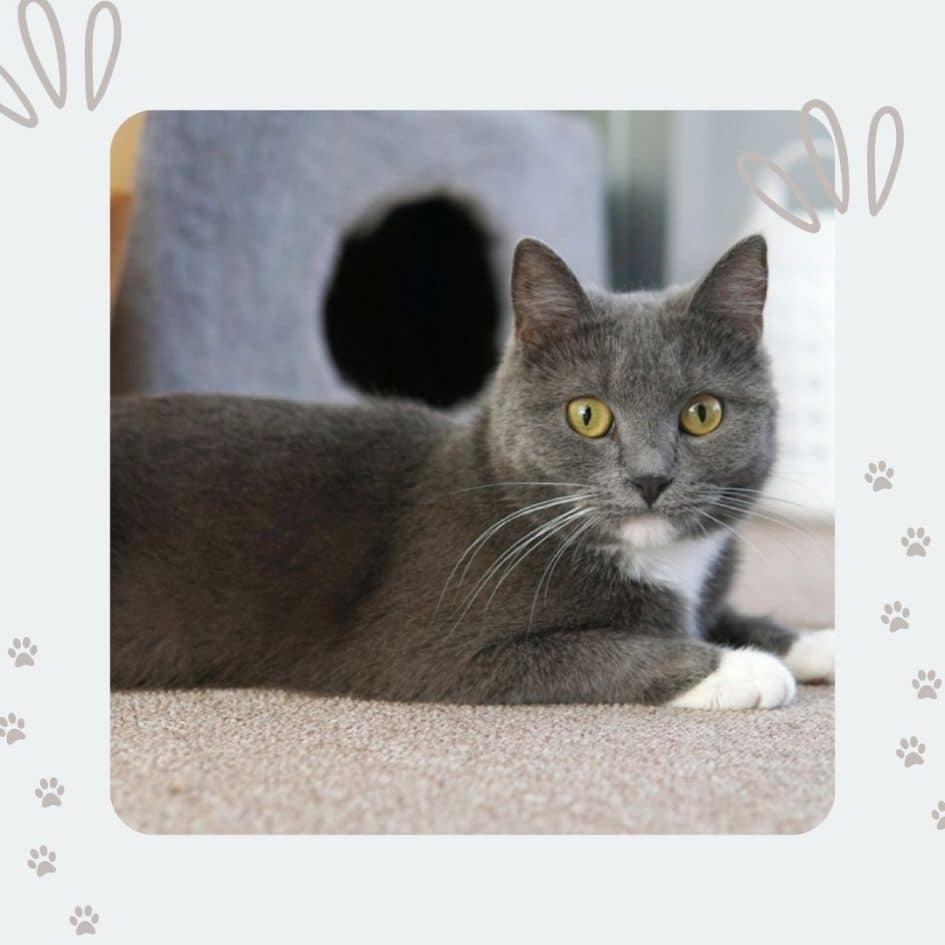

Why is My Cat Chirping? Why Do They Do It?
We can often pinpoint the reasons behind cats meowing, purring, and even hissing –but what about chirping? Read on to know what chirping is and why cats do it.
Although chirping is often solely associated to birds, that is not the case. In fact, aside from the inquisitive or friendly meow, the purr of satisfaction, and the angry hiss, cats can even chirp. If you are wondering, ‘why does my cat chirp’, this article will help you get some answers.
Explaining the Chirping Sound
How exactly does a chirp sound? Well, a chirp is also referred to as ‘trill’, owing to the musical undertone associated with the sound. Often, this sound is compared to a songbird’s warble. A chirping sound emerges when the cat keeps its mouth closed while pushing air across their vocal cords.
After making this peep-like noise, cats often proceed to chatter their jaws, which is why chirping is also sometimes referred to as ‘chattering’.
How Does a Cat Learn to Chirp?
Both domestic and wild cats learn chirping very early on in their life. The mother cat uses chirping as a tool to grab her children’s attention and to make them follow her actions. The observant kitten notices their mother, and quickly learns to mimic their mother. It does not take much time before the kitten starts using the chirping noise themselves.
Sometimes, some adult cats chirp in order to get their favorite human(s) to pay attention to them. More often, however, you will find cats chirping while staring out your window and watching other creatures like squirrels and birds.
Why Does a Cat Chirp?
Previously, people theorized that the cats used their ability to chirp as a predatory advantage. Since the chirping noise mimics the sound made by songbirds, it makes the cats’ preys feel relaxed and at ease, causing them to put their guards down against the predatory cat.
However, this theory struggles to hold water for two main reasons. One of those reasons is that, like we mentioned, cats chirp upon observing a number of different creatures and not just when they spot a bird. Secondly, successful hunting is dependent upon the hunter staying stealthy and quiet, and making as little noise as possible – chirping defeats this purpose, as it causes the cat to attract attention to itself.
One behavioral study involving multiple cats assessed the different noises that felines make, and categorized them into various groups based on the pattern of the sound. According to this study, cats tend to chirp when they are feeling frustrated or in anticipation. This theory would explain the reason that cats often chirp at their kittens; herding cats is an extremely frustrating activity, and anyone who has ever tried doing it can attest to this.
Sometimes, cats with particularly intense predatory drive can chirp while staring out the window and noticing any squirrels, birds, or other potential preys. In fact, you could even elicit a chirping response by playing a songbird audio or video in front of your cat.
According to behaviorists, cats chirp when their hunting instincts are activated; in other words, the chirping cat expects a hunt and is excited at this expectation. On the flipside, the cat might be chirping out of frustration as they cannot attack their prey even when it is right in front of their eyes.
Even cats without strong predatory instincts can chirp – for instance, your cat might start chirping when they notice you picking up their food bowl (anticipation of food). Or, your cat could chirp as soon as they notice you returning home from work or school (in this case, the reason behind the chirping is to get your attention and to tell you that they are ready to play or be petted).
Deducing the Chirping Mystery through Body Language
If you are confused about the reason behind your cat’s chirping, their body language might offer a few clues. For instance, if your cat feels playful and is chirping as an attention-seeking behavior, you will find that their eyes are all bright and wide, their tail is up and swishing, and the ears are pricked.
On the other hand, if your cat is chirping out of hunting anticipation, their body language will be a completely different picture. You will notice that your feline friend is stalking or crouched, and has the back arched. The ears, too, will be back, and their entire posture will exhibit a readiness to pounce on their prey.
Getting into some interactive play can be an excellent way to determine if your kitty likes chirping. Since felines are mimics, go for your best chirping imitation and see if your cat responds in a similar manner.
Chirping v/s Purring
A cat’s purr is sometimes likened to a switched-on motor. Purring is a constant noise that is produced when air travels over your cat’s larynx while breathing. While purring is usually an indication of calmness and satisfaction, there are times when cats can purr out of nervousness or anxiety.
Purring, for the most part, is an involuntary sound produced when the cat is calm or relaxed. Chirping, on the other hand, is very much voluntary, and is indicative of excitement or anticipation.
Chirping v/s Yowling
Yowling, like chirping, is voluntary, but that is perhaps the only similarity between the two. Cats yowl in order to communicate with other cats – for example, a cat might yowl when calling out to their mate, or to let another cat know that they own a specific territory.
Sometimes, cats yowl to express extreme distress or pain. Elderly cats yowl out of bewilderment or confusion brought as a result of declining cognitive function.
So, while the chirping noise indicates ‘positive’ emotions like excitement (though it can also be used to express frustration), yowling, apart from a few exceptions, has a ‘negative’ reason.
Wrapping Up – Is Cat Chirping a Good Sign?
Yes, for the most part, cat chirping is a positive sign. It shows that your cat wants to grab your attention and talk to you. Other times, it shows anticipation and excitement. Either way, chirping is almost always a positive sound. Since cats do not chirp to express distress and pain, neither is chirping a sign of any underlying health problems, this noise should not concern you. Cats can make a wide array of noises, and chirping or trilling is just one
Also, remember that not every cat likes to chirp, even when stimulated – so, if your cat does not chirp, do not worry at all. Maybe they do not like to show their emotions or, even if they do like expression, they have other ways to go about it.
If you want to learn more about cats and their behavior, please feel free to check out some of the other blogs on our website.
Discover how to create a joyful, healthy home for your pet.
Subscribe to your weekly rundown of practice, real life ideas and training tips straight to your inbox.


